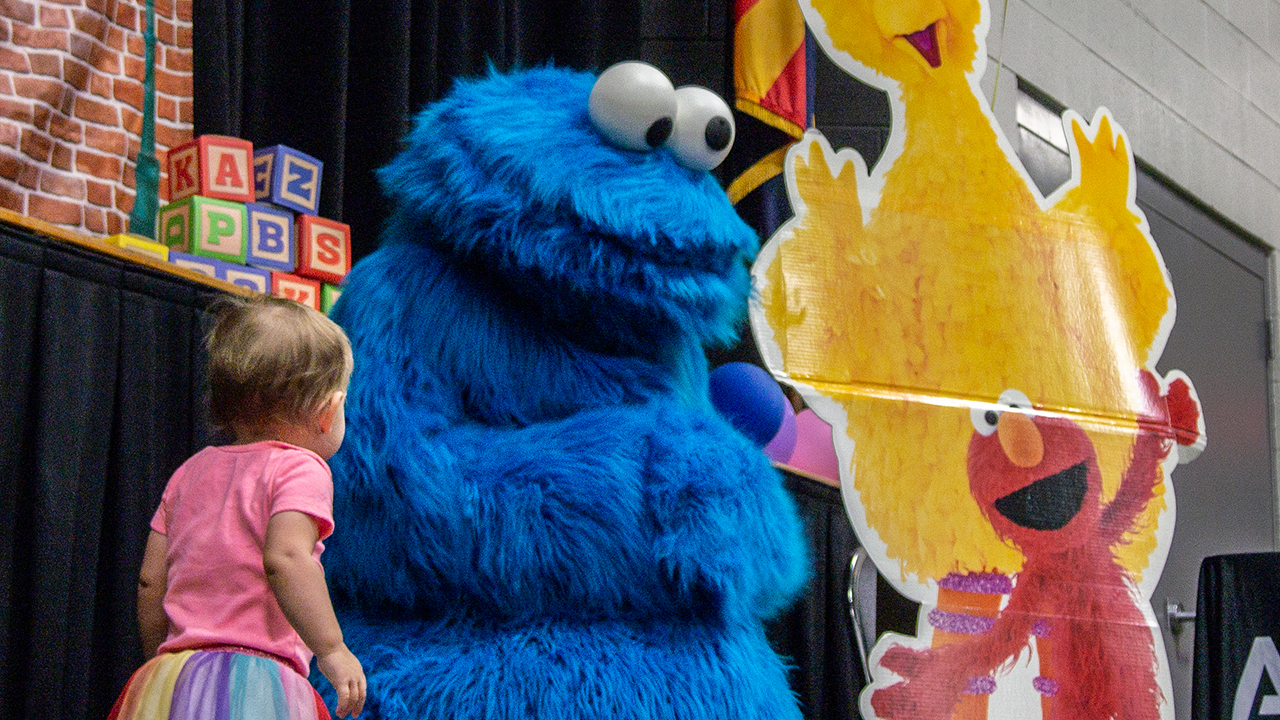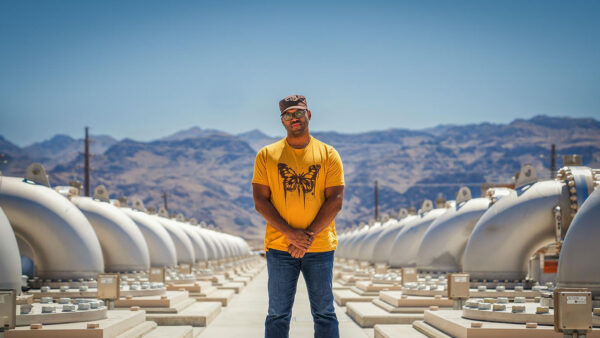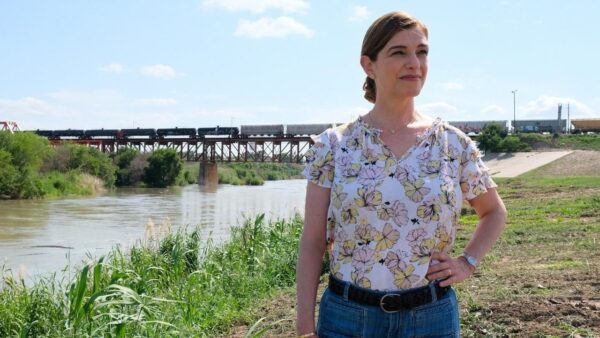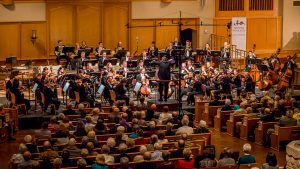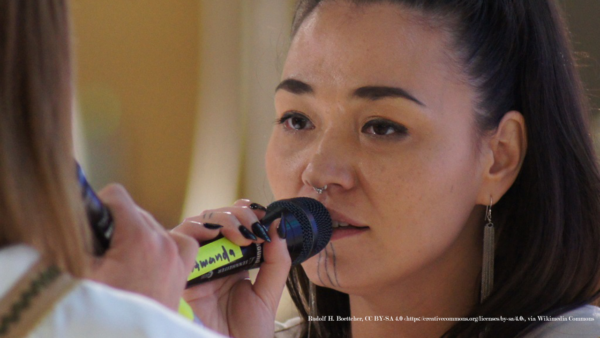One sunny Saturday, kids in Kingman, Lake Havasu City and Bullhead City, Arizona welcomed a certain blue, furry friend: Cookie Monster was in town.
The kids knew just how to make him feel at home. With a little adult assistance, they bought cookies from the PTA bake sale across the room. As each child offered him his favorite treat, Cookie Monster danced in excitement and gave each new friend a big, furry hug. The PTA couldn’t believe how many cookies they sold.
Cookie Monster was able to meet his young friends in these smaller Arizona cities as part of a day of family resource fairs organized by Arizona PBS. Funded by First Things First La Paz/Mohave Council, organizations like local PTAs, parks and recreation services and schools participated to help families connect with local resources. Kids enjoyed a variety of activities and games, and, of course, spending time with Cookie Monster.
For Arizona PBS, this was an opportunity to help children and high-need families in this rural part of the state. Kimberly Flack, director of education and community impact, explained the importance of reaching out beyond metro Phoenix.
“If you’re in Tucson, Flagstaff, Yuma or any of these other places, they always refer to [the Phoenix area] as ‘the great state of Maricopa.’ They say ‘You guys have everything,’” said Flack, referring to Maricopa County. “It’s really fun to break that stereotype, to go there, provide these community gatherings and then empower families to include the ‘Arizona PBS KIDS for Parents’ resources in their daily lives. ”
Flack said that her team works all year to reach children, families and educators across the state.
“We go all the way to that last mile,” she said.
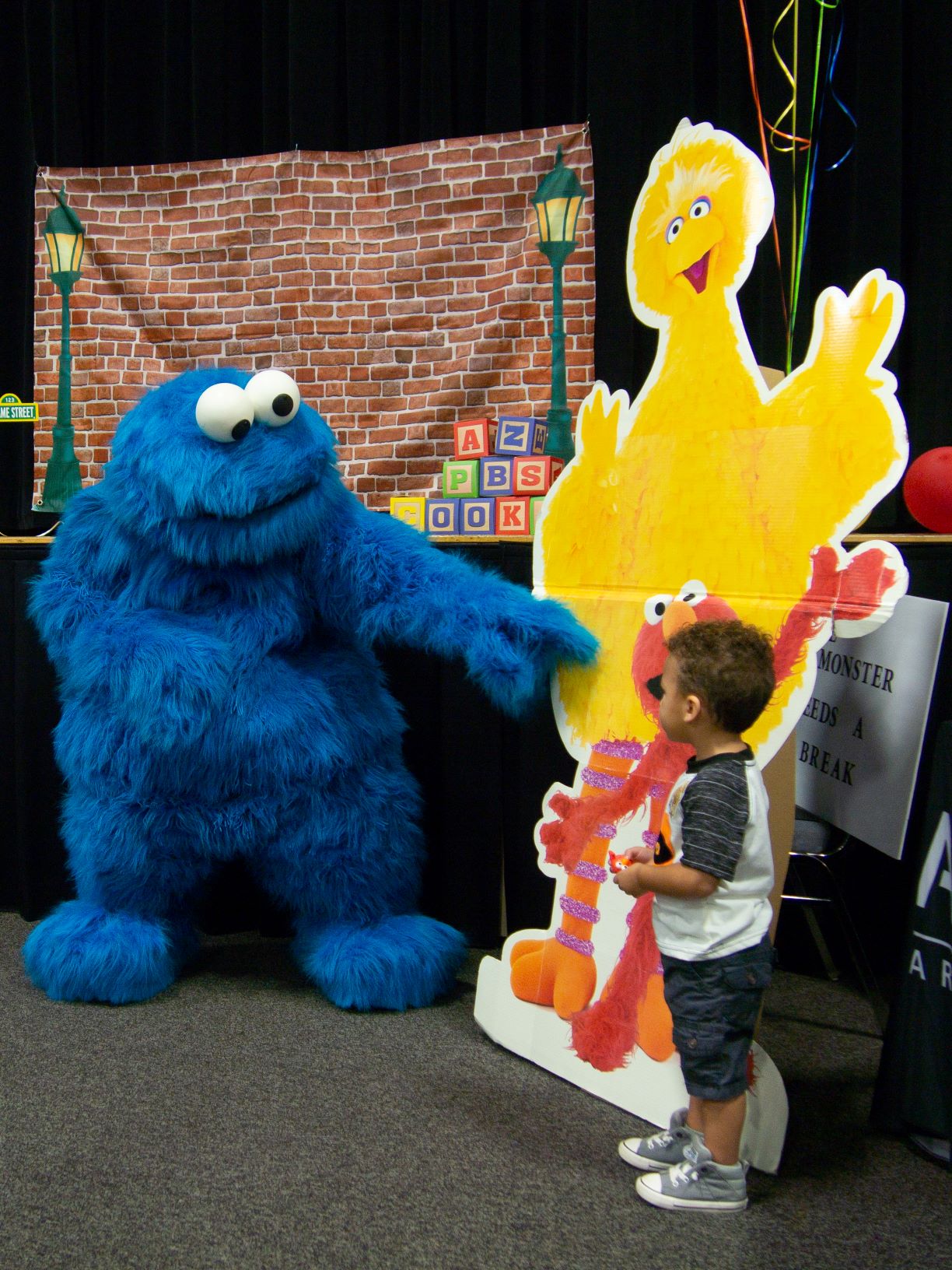
The Cookie Monster road trip was made possible by a grant given to Arizona PBS through the Sesame Street in Communities initiative, which strives to serve rural and underserved communities by providing resources for early childhood education programs. Arizona PBS was one of just 10 PBS stations nationwide to receive this grant.
Arizona PBS was selected because the station serves so many rural communities statewide, and because so many young children in Arizona aren’t in a formal preschool or Head Start program, Flack said.
“The goal was to make sure parents, caregivers and teachers know there are resources there, and how to access them,” she said.
Sesame Street in Communities provides easy-to-use tools for community providers and caregivers on the toughest issues children face, particularly on topics where there are few resources for young children. Since launching in 2015, Sesame Street in Communities has supported families on topics ranging from parental addiction to family homelessness — giving children the tools they need to build resilience and grow smarter, stronger and kinder.
The materials, which include videos, storybooks, digital interactives, games and professional development resources for educators, are available for free in English and Spanish. Everything is designed by child development experts who determine what kids at a given age can handle and which details are necessary to include.
“It helps open the door,” said Flack. “Beyond abc’s and 123’s, the site includes activities to help families explain homelessness, addiction recovery and other difficult topics to discuss with children. So many of those things are taboo subjects.”
Flack said Sesame Street’s mission is to be able to tackle real issues in a heartfelt, simple, furry, funny way that provides a place of comfort.
“It’s been a great formula,” she said. “It captures everyone.”
In partnership with Sesame Street in Communities and funding from First Things First, Arizona PBS is able to organize resource fairs, support groups and teacher workshops, including online courses and webinars that are all free and self-paced. Teachers and early childhood educators also receive professional development training hours for each course and webinar they complete.
Flack said she hopes teachers who attend the workshops will share the materials with their colleagues so there can be further reach within the communities, not just to other teachers, but to parents as well.
While Arizona PBS staff members work with rural communities through the Sesame Street in Communities initiative, they also help educators sign up for the Arizona Early Childhood Workforce Registry. The registry helps connect teachers and caregivers to workshops and other opportunities as well as giving them a place to keep a record of their credentials. Sesame Street in Communities courses are among those available for state certification hours within the registry.
Flack said that her team is planning more outreach to rural Arizona communities, although it may be awhile before another “Sesame Street” character comes to visit.
This was such a special opportunity, Flack said, that even the bus driver who ferried the team between the three cities jumped at the chance to be involved.
“He traded a trip to Bryce Canyon with another driver because he wanted to be on the bus with Cookie Monster!”
By Kasey Brammell
This story originally appeared in the Spring 2020 issue of Arizona PBS magazine.
